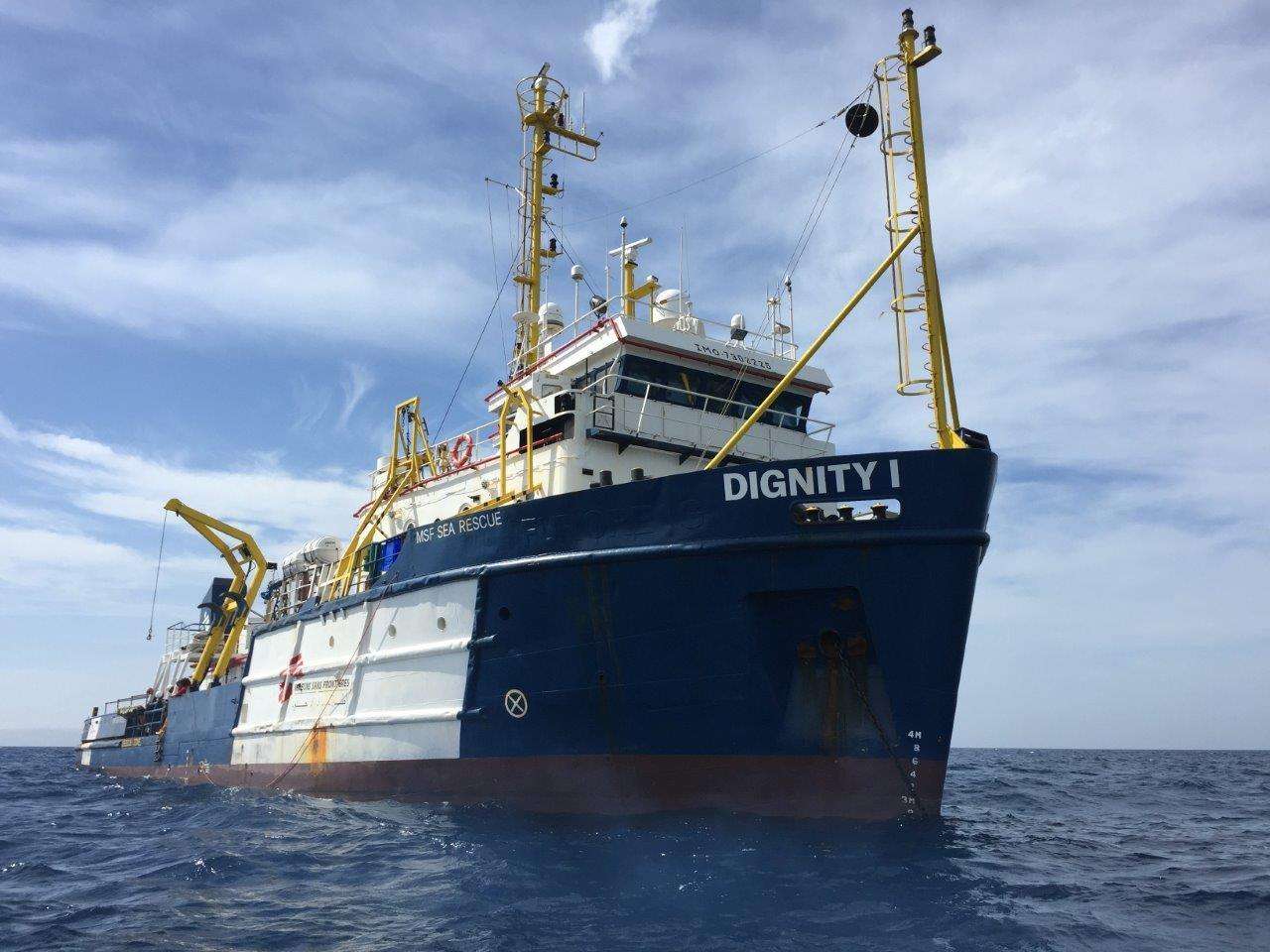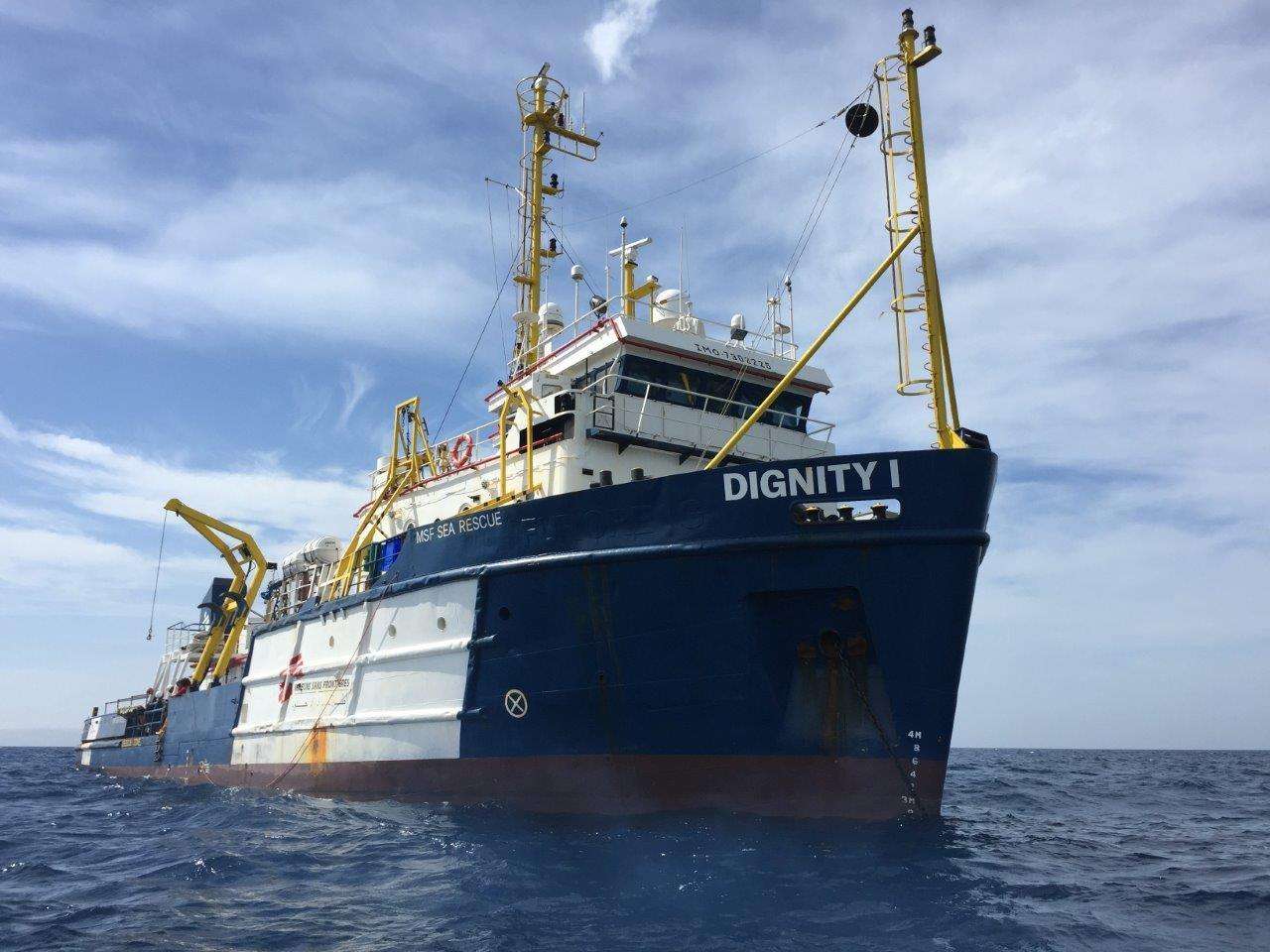Valletta, Malta, April 24, 2016 — The international medical humanitarian organization Doctors Without Borders/Médecins Sans Frontières (MSF) resumed search, rescue, and medical aid operations in the central Mediterranean Sea, conducting its first operation of 2016 this weekend.
On April 23, the MSF vessel Dignity 1 accepted a transfer of 308 rescued people (205 men, 80 women, 23 children), mainly Eritrean, from an Italian rescue boat. The Dignity 1 is now on its way to Sicily where the 308 people will disembark on Monday.
Due to the lack of safe and legal alternatives for people to flee and seek protection, the deadly stretch of water between Libya and Italy, which in 2015 claimed the lives of 2,892* men, women and children, is now almost the only way for thousands to reach European shores. It is already as busy as ever.
“This time last year, as MSF launched our first search and rescue operation, we called the Mediterranean Sea a mass grave and little has changed since then,” said Joanne Liu, MSF international president. “As crises and conflicts across the world continue to cause millions of people to flee, the absence of a global solution to the current refugee crisis, and the European states’ policies of deterrence, as well their refusal to provide alternatives to the deadly sea crossing, continue to kill thousands. As humanitarians, we again refuse to look on from the shore.”
The Dignity 1 is the first MSF search and rescue ship to be deployed this year. The 50-meter ship has a crew of 16, including experienced medical staff, and can take on up to 400 people. Dignity 1, set sail from the port of Valletta, Malta on April 21. The ship is positioned in the waters north of Libya, and actively searches for boats in distress.
In the coming weeks, MSF will reinforce search-and-rescue capacity with highly skilled and experienced MSF medical teams on board two larger ships. The teams will have the skills and necessary equipment to provide lifesaving emergency care as well as treat dehydration, fuel burns, hypothermia and skin diseases—the most pressing medical needs of those rescued by the organization in 2015. MSF will also provide psychological first aid at sea and MSF teams in Sicily will ensure continuity of care through several medical projects supporting people after they disembark.
“Refugees and migrants are looking for a safer or better life,” said Liu. “It is not acceptable to treat them as criminals, or worse, let them die, in their search for it. Rather than focusing on deterrence and surveillance, European States must provide safe alternatives to sea crossings and a search and rescue mechanism that is both dedicated and proactive. The lives of hundreds of thousands depend on it.”
In 2015 MSF teams on board three search and rescue ships in the Central Mediterranean, assisted over 23,000 people in 120 separate rescue interventions. In the Aegean Sea, north of the island of Lesbos, MSF, in partnership with Greenpeace, assisted over 14,000 people crossing from Turkey to Greece. Overall, in 2015, MSF treated more than 100,000 people on the Mediterranean and Aegean Seas and in Greece, Italy and the Balkans.
*As counted by IOM’s Missing Migrant Project. More information on the project as well as data from other migratory routes is available online at http://missingmigrants.iom.int/mediterranean





